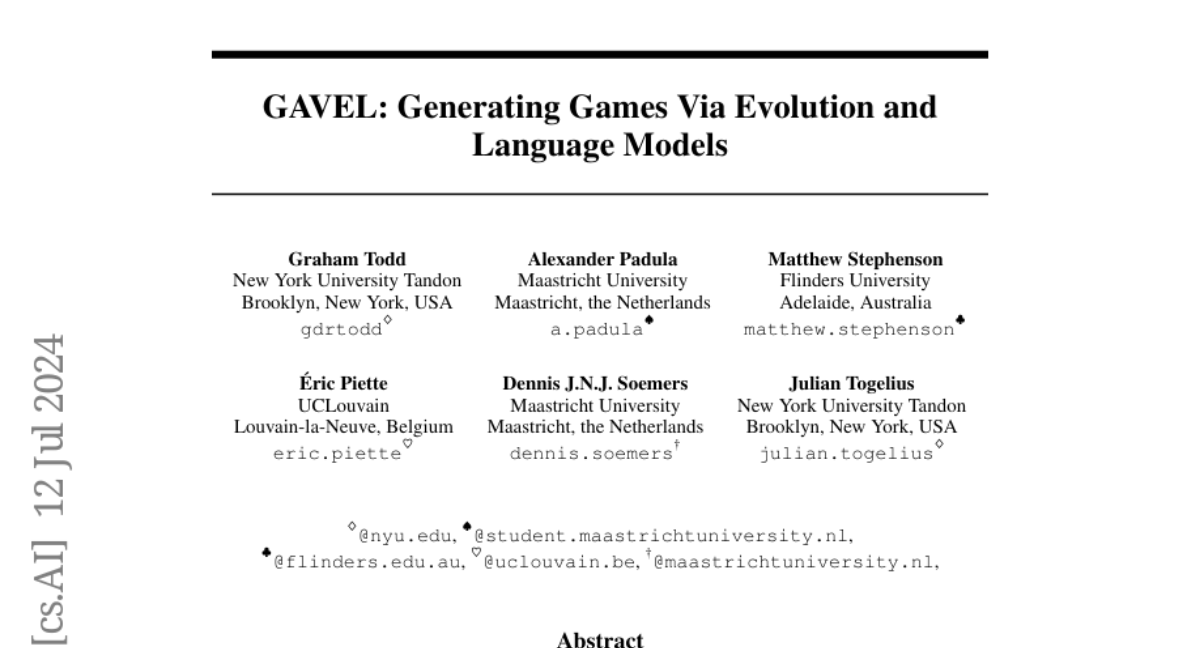GAVEL: Generating Games Via Evolution and Language Models
Graham Todd, Alexander Padula, Matthew Stephenson, Éric Piette, Dennis J. N. J. Soemers, Julian Togelius
2024-07-15

Summary
This paper introduces GAVEL, a system that uses advanced algorithms to automatically generate new and interesting games by combining evolutionary techniques with language models.
What's the problem?
Creating new games automatically is challenging because it involves defining complex rules, exploring many possible game designs, and evaluating how fun or original these games are. Previous methods have mostly relied on limited rule sets and specific strategies, which often lead to repetitive or uninspired game ideas.
What's the solution?
GAVEL tackles these challenges by using the Ludii game description language, which allows it to represent over 1,000 different board games. It combines this with large language models and evolutionary algorithms to intelligently mutate and mix game mechanics. This means GAVEL can create unique games that might not exist in the current dataset, exploring areas of game design that were previously untouched. The system has successfully generated 185 new game variations, with many being playable and interesting.
Why it matters?
This research is significant because it demonstrates how AI can be used to innovate in game design, potentially leading to a wider variety of engaging games for players. By automating the game creation process, GAVEL could help game developers save time and inspire new ideas, making the gaming industry more dynamic and creative.
Abstract
Automatically generating novel and interesting games is a complex task. Challenges include representing game rules in a computationally workable form, searching through the large space of potential games under most such representations, and accurately evaluating the originality and quality of previously unseen games. Prior work in automated game generation has largely focused on relatively restricted rule representations and relied on domain-specific heuristics. In this work, we explore the generation of novel games in the comparatively expansive Ludii game description language, which encodes the rules of over 1000 board games in a variety of styles and modes of play. We draw inspiration from recent advances in large language models and evolutionary computation in order to train a model that intelligently mutates and recombines games and mechanics expressed as code. We demonstrate both quantitatively and qualitatively that our approach is capable of generating new and interesting games, including in regions of the potential rules space not covered by existing games in the Ludii dataset. A sample of the generated games are available to play online through the Ludii portal.